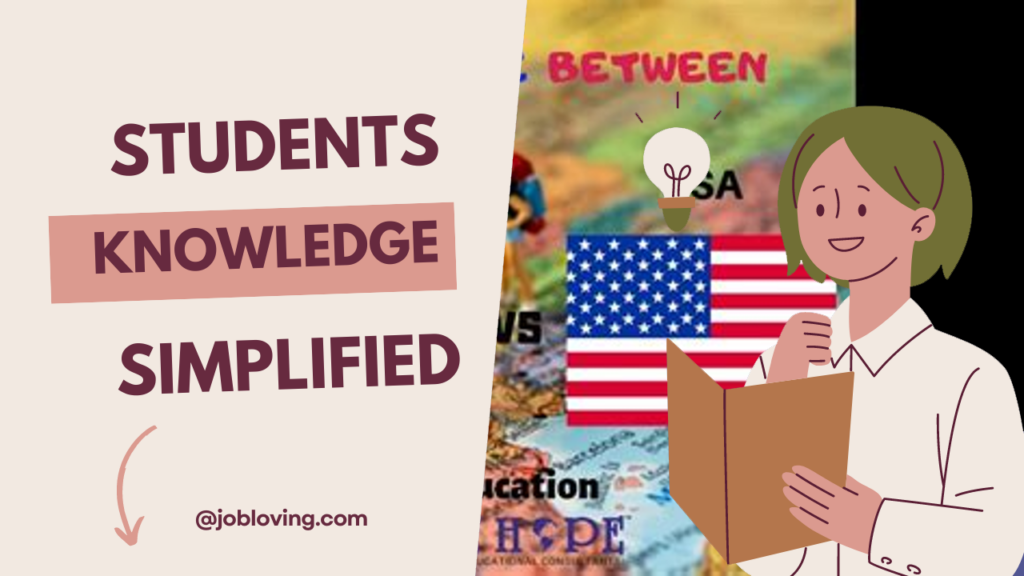Unlocking the Possibility: Can U.S. Citizens Study in Europe?
Studying abroad has long been on the bucket list for many American students. The allure of European history, diverse cultures, and unique educational opportunities fuels the dream for many. But is it actually feasible? Well, let’s unwrap this tantalizing topic and delve into the nitty-gritty of how U.S. citizens can study in Europe.
Visas: The Keys to the Kingdom
U.S. citizens are indeed eligible to study in Europe eithery long term through a student visa or short term without one. But there’s a catch when it comes to the specifics of those pathways. For long-term studies, students need to apply for a student visa, which obligates them to follow several steps before they can pack their bags and head off to explore the historic streets of Paris or the canals of Venice.
- A student visa allows American students to study for a duration longer than 90 days.
- The application process for a student Schengen visa generally takes about 15 calendar days, although it’s worth noting that this timeframe can vary, so patience is key!
- If you’re a minor, you’ll need additional documents and parental consent—a small price to pay to chase your educational dreams!
But what if studying abroad is more of a short-term adventure? For those craving a quick getaway to take a language course or an art class, you’re in luck! U.S. citizens can enjoy the fantastic opportunity to attend short courses in Europe visa-free. However, a key change coming in 2025 is the requirement for the European Travel Information and Authorization System (ETIAS) for short-term studies. This system will need to be navigated by American students looking to explore their passions without the long-term commitment.
A World of Choices: Popular Study Destinations
Let’s talk about where to go! Europe shines with countless destinations that appeal to American students. Spain, Italy, and Sweden stand out among the top choices, presenting a blend of rich histories and vibrant cultures. With tuition fees in several public universities (think Norway, Iceland, Germany, and Sweden) even potentially being tuition-free for Americans, the options are both financially and educationally appealing.
- Spain: Known for its lively culture, stunning architecture, and delectable cuisine, Spain offers immersive language and cultural studies opportunities.
- Italy: Sip espresso in Florence while studying art history or sample gelato after a class on ancient Roman civilization.
- Sweden: Famous for its high-quality education system and progressive teaching methods, plus breathtaking landscapes for students’ explorations!
Many European universities provide programs in English, making them much more accessible to American students. This option underlines the fact that you don’t need fluent French or German to pursue your degree abroad!
Beyond Academics: Culture, Language, and Experiences
Studying in Europe isn’t just about hitting the books; it’s also a wonderful opportunity to immerse yourself in new cultures while honing any foreign language skills you might have—or even picking up a new one! The experience extends far beyond the classroom as students travel easily across Schengen Area countries, enhancing their education with real-world encounters.
Short-term courses encompassing various skills such as cooking, photography, and art, are perfect for those intriguing summer adventures. Even if you’re significantly into academics, short courses can also serve as an enriching complement to your regular studies, expanding your horizons in myriad ways!
The Financial Aspect: Costs and Logistics
Tuition costs in Europe can notably *halve* what you might pay at many U.S. universities. Yet, it’s essential to do your research, as the cost of living can dramatically vary from city to city. While public institutions in some countries are incredibly affordable or even free, cities like London or Paris can be substantially pricier. Considering the costs of rent, food, and transportation is crucial to ensure that financial logistics don’t end up being a deal-breaker for your European adventure!
Speaking of finances, finding scholarships and grants is another layer worth pursuing—there are countless financial aid opportunities specifically geared towards American students, even for international education.
Educational Recognition: Degrees and Opportunities
Another concern many American students have relates to the recognition of foreign degrees back home. Fear not! Generally, European degrees are recognized in the U.S., especially those from reputable institutions. However, some fields may demand verification, so it’s wise to look into that beforehand.
- Credentialing agencies are sometimes required for U.S. graduate school admissions, so keep this in mind if you’re eyeing further studies.
- Employers often accept European degrees, particularly multinational companies with global operations, which enhances their value significantly.
Navigating Challenges: Cultural Differences and Emotional Journey
It’s a beautiful dream but inevitably, there are challenges in pursuit of education abroad. Many *American students feel unprepared* to study abroad—especially at the tender age of 18. Homesickness, cultural differences, and the sheer emotionality of relocation often overshadow the academic excitement. The differences in educational systems can be daunting, with U.S. students frequently confronting less streamlined application processes as compared to their domestic counterparts.
Moreover, the perception that U.S. education is *superior* frequently dissuades students from considering this path. However, the unique courses, cultural interactions, and diverse environments do enrich the educational experience. Acknowledging these hurdles while remaining open to the prospects of studying abroad is crucial for any student considering this leap.
Conclusion: An Adventure Awaits
Despite the challenges, studying in Europe undoubtedly presents a route filled with enriching experiences and exciting learning. As major destinations prepare to welcome exuberant American students, the potential for academic, cultural, and personal growth waits just across the Atlantic. So pack your bags, grab your passport (that you hopefully already have!), and get ready to embark on a journey of knowledge that extends beyond the classroom.
With preparation, passion, and proper guidance, studying in Europe is not only possible for U.S. citizens—it could very well be the adventure of a lifetime!

